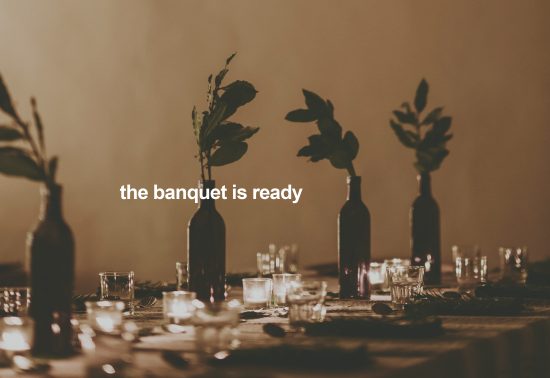So the servants went out into the streets and gathered all the people they could find, both the good and the bad, and the wedding hall was filled with guests. Matthew 22:10
Bruce Stanley, president / CEO – One of the encouraging (and discouraging parts) of Lent and Easter for clergy is the spike in attendance. People who do not bother to darken the door of the church will turn out at Christmas and for Palm Sunday and Easter; pews that are routinely vacant will be crowded. This is similar to Matthew 22 when, in the parable of the wedding feast, we learn that “the hall is filled with guests.”
In this parable, Jesus provides us with an urgent imperative. Christ the King commands his servants to invite all to the banquet without judgment. Everyone is to be welcomed and we are to suspend our ill-informed and less than holy considerations of whom we consider to be worthy.
This is hard for us. Despite earlier teachings such as the log in our eye (and the splinter in the eye of others), we insist on propping up our own righteousness by denigrating others. We are so eager to assure ourselves of our own goodness that we deprive others of their identity. Inevitably, our tendency is to compare ourselves at our best to others at their worst.
Several years ago, Saturday Night Live did a sketch about Vlad of Wallachia. Historically, Vlad was a Slavic hero, widely celebrated as the ruler who defeated the Ottoman Turks in 1389 at the Battle of Kosovo. To intimidate the Turks, Vlad and his troops practiced a gruesome form of execution: They mounted prisoners upon great sharpened poles, leaving them to slowly die. He became known as Vlad the Impaler.
On SNL, Vlad (played by Randy Quaid) was approached nervously by Chevy Chase who said the loud and sustained screams (from the victims) made it difficult to sleep at night. Chase suggested Vlad impale fewer people, and politely suggested he only impale the “ones who deserve it.” Vlad’s response was something akin to the question “Who am I to play God and decide?”
Most good comedy has something of an edge. This is a dark tale, and this is dark humor. It does, however, convey the same profound truth found in the parable of the wedding feast. God wants us to treat all persons the same and welcome everyone into the banquet. We are not to make judgment about who is worthy and who is not. Jesus died a death every bit as brutal as Vlad’s victims. He did so not for a select few but for the sins of all the world.
Not just during Lent but every minute of every day we ought to live invitingly. We ought to cease looking for the shortcomings of others and examine only ourselves. It is time for us to get busy. Go out into the wide streets and bring all – the good and the bad – into the banquet. The feast has already been prepared.

